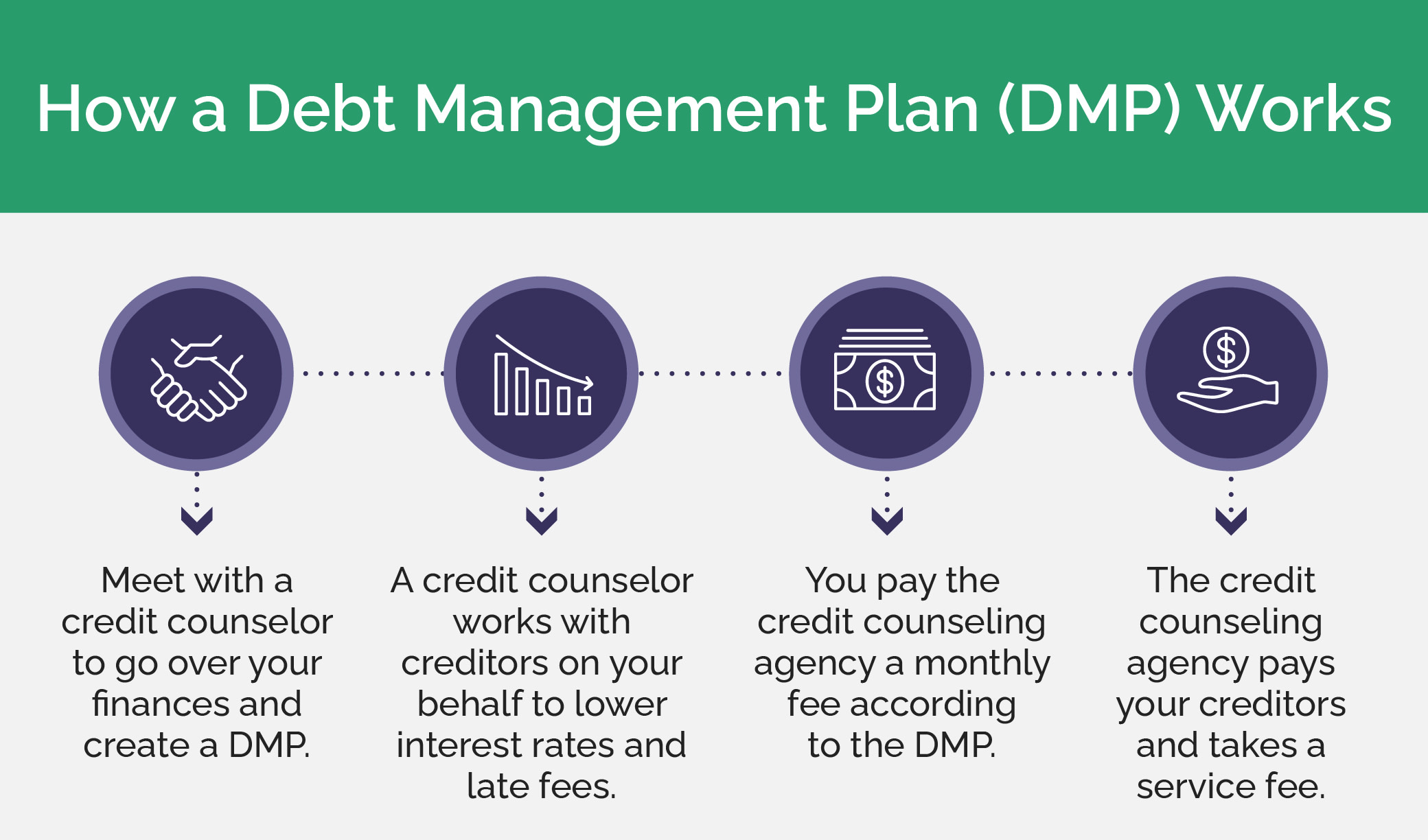A Complete Overview to Debt Management Plan Services for Debt Loan Consolidation
A Complete Overview to Debt Management Plan Services for Debt Loan Consolidation
Blog Article
Expert Tips and Strategies for Executing an Effective Financial Obligation Administration Plan
When it comes to navigating the complexities of debt management, having a well-balanced strategy is crucial for attaining financial stability. From assessing your present financial standing to bargaining with lenders, each action plays a critical function in shaping an effective debt management plan.
Examining Your Present Financial Situation
Prior to getting started on a financial obligation management strategy, it is vital to extensively examine your present financial standing. Recognizing your financial situation is the fundamental step in the direction of efficiently managing and minimizing your financial obligation.

Establishing a Realistic Spending Plan
Recognizing your existing financial scenario lays the groundwork for developing a reasonable budget plan that straightens with your debt administration objectives and monetary capacities. When developing a budget, it's important to precisely track your income, expenditures, and debt obligations. By categorizing your costs, you can identify areas where you might need to reduce back to release up funds for financial obligation payment.

Focusing On and Dealing With Financial Debts
To properly regain control of your funds and job towards economic security, focusing on and tackling your debts is a vital step in your financial obligation management plan. Begin by noting all your financial debts, including credit report cards, financings, and any kind of various other outstanding balances. Identify high-interest financial obligations that are costing you one of the most money and focus on paying them off initially. By concentrating on these high-interest debts, you can save cash over time and reduce the complete quantity you owe.
After identifying your high-interest financial obligations, consider making use of methods like the debt snowball or financial obligation avalanche method to pay them off systematically. The financial debt snowball approach involves repaying the tiniest financial debts initially, while the financial debt avalanche technique prioritizes debts with the greatest rate of interest. Choose the technique that straightens ideal with your economic goals and encourages you to maintain making progression.
Additionally, take into consideration negotiating with financial institutions for reduced rate of interest or setting up a layaway plan if you're having a hard time to satisfy your existing commitments. Seeking assistance from a credit history therapist or economic expert can additionally give beneficial understandings and assistance on exactly how to effectively tackle your financial obligations - debt management plan services. By prioritizing and resolving your debts purposefully, you can lead the way towards a debt-free future and improved economic health
Bargaining With Financial Institutions
When involving in debt monitoring, negotiating with creditors is a vital action towards discovering equally useful options for check financial obligation repayment. Open communication with lenders can result in revised layaway plan, reduced rates of interest, or perhaps settlement offers. Before starting negotiations, it is necessary to have a clear understanding of your economic circumstance, including your income, expenditures, and the total amount of financial debt owed. This info will not just aid you make realistic deals yet likewise demonstrate to financial institutions that you are committed to settling the debt.

Building Healthy And Balanced Economic Practices
Incorporating regular budgeting techniques is essential for growing healthy financial behaviors. Budgeting enables people to track their earnings and expenses, enabling them to make informed decisions concerning their monetary priorities. Establishing certain economic objectives, such as conserving for emergencies or retired life, can supply a clear roadmap for managing cash properly.
One more trick facet of structure healthy and balanced monetary routines is living within one's methods. This entails investing much less than what is made and staying clear of unneeded financial debt. Distinguishing and embracing a penny-wise attitude between wants and needs can help people make more prudent costs choices.
On a regular basis assessing financial declarations and keeping an eye on credit records are essential practices that promote economic recognition and obligation. By remaining notified concerning their monetary standing, individuals can recognize prospective concerns early on here are the findings and take positive actions to resolve them.
Additionally, establishing a financial savings routine, despite having little amounts, can add considerably to long-lasting monetary protection. Conserving on a regular basis not just constructs an economic padding for unforeseen expenditures but additionally fosters a feeling of self-control Read Full Report and obligation in the direction of finance. By consistently practicing these practices, individuals can lay a strong foundation for a steady economic future.
Final Thought
In final thought, carrying out an effective financial debt management plan requires a thorough assessment of one's monetary circumstance, the growth of a reasonable spending plan, prioritizing and taking on financial debts, discussing with creditors, and building healthy financial routines (debt management plan services). By adhering to these expert pointers and strategies, people can take control of their financial resources and work towards attaining monetary security and liberty from financial debt
Recognizing your existing financial circumstance lays the groundwork for establishing a sensible budget that lines up with your financial debt administration objectives and economic capacities.To successfully restore control of your funds and work towards monetary stability, prioritizing and tackling your debts is an important step in your debt management strategy.After identifying your high-interest financial debts, consider using techniques like the debt snowball or financial debt avalanche method to pay them off systematically. The financial obligation snowball approach involves paying off the tiniest debts first, while the debt avalanche technique prioritizes financial obligations with the greatest rate of interest prices.When engaging in debt monitoring, bargaining with lenders is an important step in the direction of finding equally useful solutions for debt settlement.
Report this page